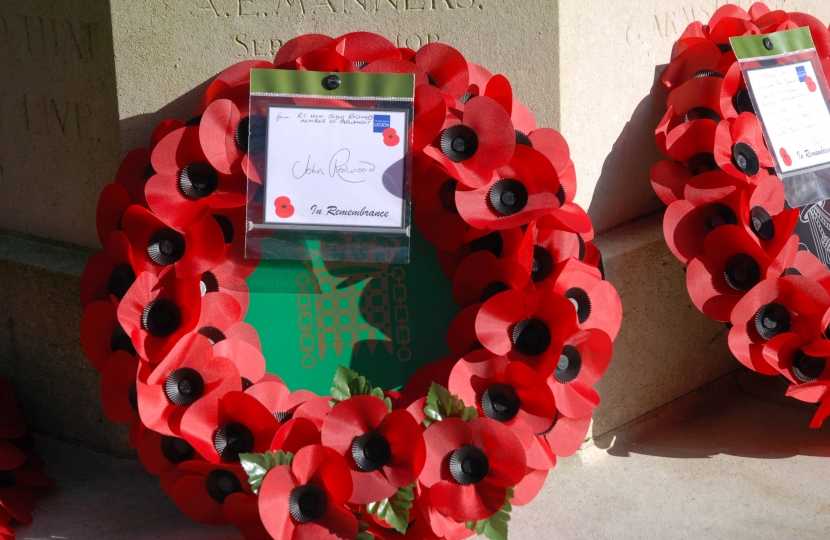
Today amidst solemnity and ceremony I will lay a wreath in Burghfield and a wreath in Wokingham Town Hall. I do so to remember those who gave their lives in the two world wars of the twentieth century and other more recent conflicts.
This year I do so with more foreboding than usual. There have been many more acts of remembering of the Great War of 1914-18 in recent weeks as we bring to mind events now five score years ago.
The articles, books, tv programmes and pictures of that long and brutal Armageddon have allowed many of us to go over in our minds again just what our grandfathers and great grandfathers experienced as young men in the trenches. The film and diary record reinforces the desperate poetry of Wilfred Owen and others. He asked whether it was “Dulce et decorum” “pro patria mori”. Could he say that death in those murderous fields was sweet and honourable if done in the name of our country? He contrasted those feelings with the horrors of a gas attack.
The majority view can now be revised as the soldiers who were left have grown old and died of natural causes. It seems to be settling down to the view that our small professional army, then our mass citizens army, fought bravely and with pride. The political and military leadership was of more doubtful quality, leading to huge slaughter before an eventual victory. Many then doubted the wisdom of command. After it all they asked what had been achieved other than the victory.
Those who fought that war hoped the sacrifice of their comrades would not be in vain. They passionately wanted a permanent peace to follow. Instead, diplomatic and political bungling led to a repeat world war starting in Europe just 21 years later. That war had to confront a worse evil. British military personnel were not just fighting to defeat an aggressive Germany, but were fighting against a bestial ideology that threatened mass extermination of peoples they did not like.
As I reflect again on these heavy matters during the services, I will turn for comfort to the words of Abraham Lincoln. For at the end of the two world wars a new, better, more democratic and peace loving group of nations in Europe did eventually emerge. Lincoln’s speech was wrong about the importance of what those who survive a war say and think about it. When he spoke of the sacrifice of the Union army at Gettysburg, he found phrases that have echoed across the decades:
“We cannot dedicate, we can not consecrate, we can not hallow this ground. The brave men, living and dead, who struggled here, consecrated it. The world will little note, nor long remember, what we say here, but it can never forget what they did here. It is rather for us to be here dedicated to the great task remaining before us – that this nation, under God, shall have a new birth of freedom – and that government of the people by the people, for the people shall not perish from the earth”
There is a vision we can all aspire to.


